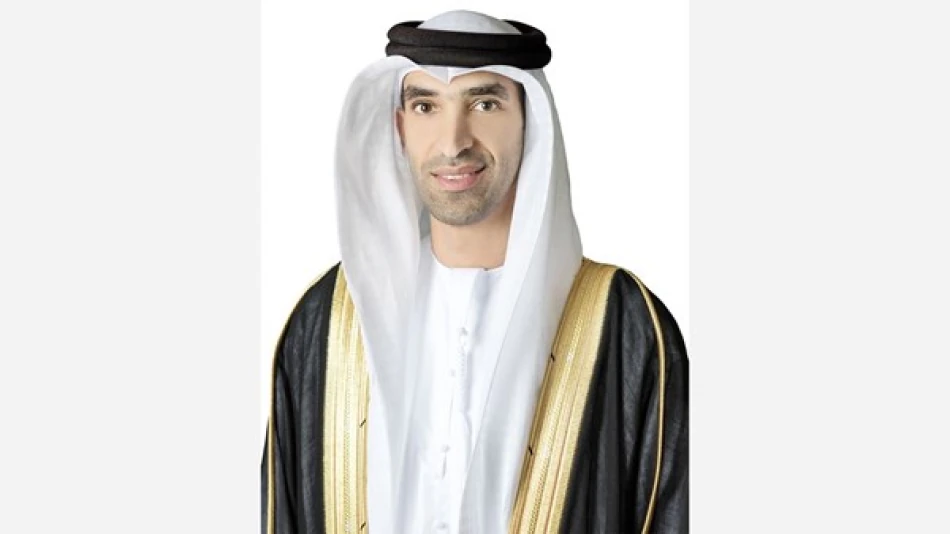
UAE and Angola Aim for $10 Billion in Bilateral Trade by 2033
UAE-Angola Trade Partnership Targets $10 Billion Annual Exchange by 2033
The United Arab Emirates has positioned itself as the gateway to sub-Saharan Africa through a comprehensive economic partnership agreement with Angola, aiming to quintuple bilateral non-oil trade to over $10 billion annually within a decade. This strategic move leverages Angola's 4.4% GDP growth in 2024 and its potential as a regional logistics hub to strengthen UAE's role in global supply chains connecting the Arab world, Europe, Asia, and Africa.
Angola's Economic Renaissance Creates UAE Opportunity
Dr. Thani bin Ahmed Al Zeyoudi, UAE Minister of Foreign Trade, highlighted Angola's emergence as one of Africa's most promising markets, driven by a young demographic profile and abundant natural resources. The country's strategic Atlantic coastline positions it as a potential logistics gateway for west and sub-Saharan Africa, regions experiencing accelerated development through strategic investments and partnerships.
Angola's economic recovery mirrors similar transformations seen in other resource-rich African nations like Ghana and Nigeria, where diversification efforts beyond oil have attracted Gulf state investments. The UAE's approach follows its successful trade expansion model previously deployed in Southeast Asia and Latin America.
Bilateral Trade Shows Strong Momentum
The partnership builds on existing commercial ties dating back to 1997, with bilateral non-oil trade reaching $2.17 billion in 2024, representing 2.6% growth year-over-year. More significantly, the first half of 2025 recorded $1.4 billion in trade volume, marking a robust 29.7% increase compared to the same period in 2024.
Import-Export Composition Reveals Strategic Focus
UAE imports from Angola concentrate heavily on high-value commodities, with diamonds, gold, copper products, and grains comprising 99.8% of total imports in 2024. This commodity-focused import profile resembles UAE's trade relationships with other African mineral exporters like the Democratic Republic of Congo and Botswana.
UAE exports to Angola include petroleum distillates, iron and steel products, industrial valves, metal structures, cigarettes, and perfumes, collectively representing 50% of total exports. The re-export sector focuses on vehicles, diesel trucks, and automotive parts, highlighting Angola's infrastructure development needs.
Major UAE Corporations Drive Investment Pipeline
Several prominent Emirati companies have established significant presences in Angola, signaling long-term commitment beyond traditional trading relationships. Masdar, Abu Dhabi's renewable energy flagship, is developing a 150-megawatt solar project capable of powering 90,000 homes, aligning with Angola's energy diversification goals.
Dubai Investments is constructing the "Dubai Investment Complex - Angola" spanning 2,000 hectares, while Abu Dhabi Ports recently commenced operations at a multipurpose terminal in Luanda port. These infrastructure investments position UAE entities to benefit from Angola's projected economic expansion.
Economic Impact Projections Signal Ambitious Growth
The agreement targets adding approximately $1 billion to both countries' GDP while creating nearly 30,000 new jobs. The UAE anticipates additional imports worth $993.6 million in glass, fish, fruits, and optical products from Angola, while projecting $235 million in increased exports of electrical machinery, plastics, rubber, ferrous metals, chemicals, and metal products.
Services Sector Integration
The partnership emphasizes services cooperation across business logistics, construction, engineering, healthcare, education, environmental services, finance, telecommunications, and tourism. Given that services contribute approximately 40% of Angola's GDP, this represents a substantial opportunity for UAE's diversified economy.
Small Business and Startup Ecosystem Development
The agreement establishes frameworks supporting small and medium enterprises through reduced trade restrictions and collaboration platforms connecting incubators, accelerators, export centers, and youth and women-owned businesses. A specialized committee will provide tools and resources for these segments to capitalize on emerging opportunities.
This SME focus reflects lessons learned from UAE's domestic economic diversification, where small business development proved crucial for sustainable growth beyond oil revenues.
Market and Investor Implications
For investors, this partnership represents UAE's systematic approach to securing commodity supply chains while expanding market access for its manufacturing and services sectors. The agreement's immediate implementation upon ratification will deliver benefits including simplified customs procedures, reduced tariffs, and enhanced market access.
The 10-year timeline to reach $10 billion in annual trade suggests confidence in Angola's continued economic stability and growth trajectory, potentially making it an attractive destination for portfolio investors seeking African market exposure through UAE-listed companies with Angolan operations.
Most Viewed News

 Layla Al Mansoori
Layla Al Mansoori






